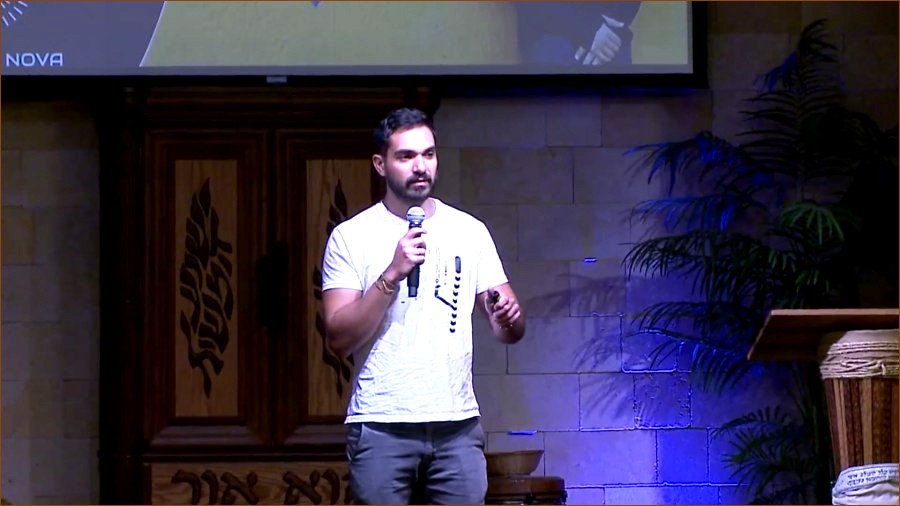OVERLAND PARK, Kan. — Marking an indelible scar on history, October 7, 2023, witnessed perhaps the most harrowing terror attack ever faced by Israel. In a shocking turn of events at a vibrant music festival near the Gaza Strip, a staggering 364 revelers met their untimely deaths, with an additional 40 taken hostage—an incident that spiraled into an ongoing, brutal conflict.
It was a day of unprecedented carnage as missiles, mercilessly unleashed by Hamas, transformed a festive atmosphere into a grim tableau. The cacophony of music was abruptly silenced—only chaos and fear remained.
On Tuesday, the Or HaOlam Messianic Synagogue in Overland Park became a sanctuary for reflecting on resilience as worshipers gathered to listen to the gut-wrenching account of a survivor. Rom El-Hai, who had traversed the globe attending music festivals, had eagerly volunteered for the Nova Pride event on that fateful day.
“Imagine the surprise when I received the festival’s address just an hour before it kicked off. Sure, we registered it was close to Gaza, but hey, we’re still in Israel, right?” El-Hai recounted, recalling the initial thrill of anticipation shortly before everything unraveled.
As dawn broke at 6:30 a.m., with music blaring and spirits soaring, the reality of impending doom crashed down as attendees spotted missiles streaking towards them from Gaza. Panic set in. The euphoria morphed into sheer terror as El-Hai and his companions dashed to their vehicle, only to find escape routes ensnared.
“We were trapped; the roads were blocked, and panic gripped us. The missiles whizzed overhead while we knew we couldn’t linger with the threat just around us. Abandoning our car, we plunged into the fields,” he explained, painting an image of a frantic scramble for survival.
The fields, soon enveloped in smoke, became a haunting sanctuary of uncertainty. Gunfire erupted, fierce and deliberate, echoing around them as a deadly soundtrack to their plight. “There was no savior in sight. We could only hunker down between trees, cars—whatever offered the slightest cover,” he continued, trying to capture the bleakness of their reality.
El-Hai sustained a torment that stretched for eight hours, marked by the taunts of assailants and the heart-wrenching cries of fellow festival-goers succumbing to violence. It was only through the brave intervention of a police officer that they finally escaped—only to face the grim news that friends they had danced beside hours before were now captives or worse, victims.
“They came to celebrate, to savor good times amongst friends. Yet, tragically, for many, the dance floor became their graveyard,” El-Hai lamented, a palpable sorrow echoing in his voice.
In the aftermath, the sun-bleached desert, once a backdrop for joyous music, stands as a somber memorial—a place where some members of the Overland Park community have found the strength to pay homage to lost souls.
“It felt as if all our hearts, collectively, were under attack,” expressed Rabbi Shmuel Wolkenfield, summing up the community’s grief.
El-Hai feels an unwavering urgency to voice his narrative, Viewing it as not merely personal but as a chapter in a larger, collective saga of suffering. “This experience transcends my individual anguish; it encapsulates the narrative of our nation—my story is everyone’s story,” he proclaimed.
Yet, amid the shadows of despair, El-Hai’s voice rises with a message of hope and renewal—through music, he finds healing, envisioning a moment when he can dance again without fear. “Returning to the dance floor signifies a small, yet profound, personal victory for me,” he shared, wearing a shirt emblazoned with the words “We Will Dance Again”—a poignant motto mirrored in the forthcoming documentary capturing the festival’s tragic events.
In the face of adversity, the rhythm of life persists, beckoning souls to reclaim joy amidst insurmountable sorrow.

